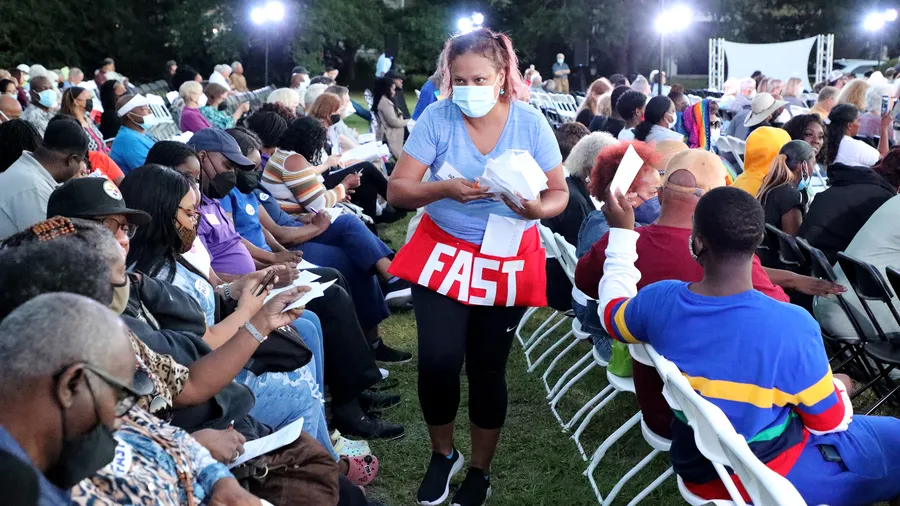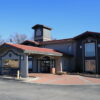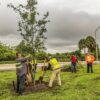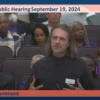By Lauren Peace, Tampa Bay Times
The reverend stood at the podium and, looking out at the crowd of around 2,000, lifted a hand and began his testimony. His voice boomed from speakers that framed the stage as the congregants shifted in their seats.
It was like a scene from a megachurch, but this was no Joel Osteen function.
Instead of an auditorium, the congregants Monday filled folding chairs that lined a grassy field. Diversity shined bright with Catholics, Baptists, Muslims and Jews. Unitarian Universalists wore matching blue t-shirts, others dressed in their Sunday best — all gathered with a mission of bringing justice and reform to Pinellas County.
“We are here tonight to do the holy work of justice,” the Rev. Ronald Wade told the crowd. “We are here tonight, really, because we love our community.”
Every year since 2004, activists from Faith and Action for Strength Together (FAST), have gathered for the Nehemiah Action Assembly, which brings congregants and local politicians together to address injustices in the county. A group in Hillsborough, the Hillsborough Organization for Progress and Equality (HOPE), held a similar event Monday at Brandon’s Nativity Catholic Church.
The Pinellas group chooses a different focus each year and the selection process follows a strict methodology, beginning with small-group discussions where congregants bring forward community issues. Past assemblies addressed mental health, senior transportation, and getting money for low-income children to attend full-day prekindergarten.
Once an issue is chosen, months of research produce policy recommendations. Those recommendations are shared with local leaders, who are invited to attend the assembly where negotiations begin.
Leaders in attendance are asked whether they agree to draft or support the policy change. If they answer “yes,” the crowd erupts in applause. If they answer “no,” follow-up questions prompt officials to justify their answers.
Taking the stage Monday night were Pinellas County Commissioner Charlie Justice, St. Petersburg City Councilor Richie Floyd, Clearwater City Councilor Kathleen Beckman, St. Petersburg Police Chief Anthony Holloway, Clearwater Police Chief Dan Slaughter and Pinellas County Clerk of Courts Ken Burke. St. Petersburg Mayor Ken Welch and Pinellas County Sheriff Bob Gualtieri were invited, but did not attend. Both absences were noted.
During opening remarks, Wade spoke of two cities — one of investors buying luxury condos, while 60,000 families struggle through poverty; where tourists flock to pristine beaches, but the environmental effects of development result in polluted waterways and tainted air; where out-of-state drivers race through downtown, while those from the community are “arrested and branded for life for driving on a license that was suspended for a small mistake.”
Each contrast raised by Wade represented one of the three issues brought forth by the assembly this year. Here’s what those issues were and how officials responded to proposed change.
Environmental justice
Jerome Harris, a member of McCabe United Methodist Church in St. Petersburg, has witnessed the effect of an environmental hazard on his family.
Last year, at the height of Red Tide, Harris said, he had four family members hospitalized with breathing problems. Two of the four people hospitalized were children.
“When the air is so toxic it sends people to the hospital, it is time for our local officials to take action,” Harris said.
Stories like Harris’, along with others about runoff, sewage dumping and water pollution linked to new development are why the coalition called on local officials to adopt higher fees for new development, which can be used to lessen environmental harms that come with increased population density and construction.
Impact fees are one-time payments to governments by developers that aim to offset environmental effects of construction. Some municipalities in Pinellas, such as St. Pete Beach and Madeira Beach, recently have adopted higher impact fees.
The group on Monday asked that Pinellas County, St. Petersburg and Clearwater support the adoption of more impact fees. Currently, St. Petersburg and Pinellas County each have impact fees for transportation. That’s in contrast to Orange County, which has additional impact fees to support fire, law enforcement, parks and recreation and schools. Although Clearwater has impact fees for things like water and sewer, FAST asked Beckman to agree to meet to consider additional fees for new construction.
Beckman of Clearwater agreed. So did Floyd when asked about St. Pete’s impact fees.
Justice, however, said that he would not. He said that Pinellas County has other policies to hold developers accountable, including a surface water fee and a requirement that new developments have sewer laterals inspected and maintained.
Affordable housing
Pinellas County residents are being forced to move away as rents increase and the housing market booms.
On Monday, the group asked representatives to adopt specific affordable housing goals over the next four years.
“My niece works full-time in medical billing. My nephew works full-time in utilities,” said Sarah Ward, a member of Mount Moriah Missionary Baptist Church in St. Petersburg. “They’re not finding anything in their price range to either rent or buy in Pinellas County, so they’re likely going to move out.”
Justice was asked to make sure Penny for Pinellas funds are spent on families most in need. Floyd was asked to pledge to ask Welch to have 5,000 affordable housing units built in St. Petersburg by the end of his first term.
Both agreed. Beckman also pledged to continue to support affordable housing in Clearwater.
Criminal justice and pre-arrest diversion
Pinellas County currently has a program that creates a path of restoration for people who commit some non-violent misdemeanors that works outside of the court system so they don’t end up with a criminal record that hinders their employment or housing. But drivers who are stopped for things like driving on a suspended license and insurance expiration are ineligible.
Faith and Action for Strength Together wants to change that.
“Pinellas County Black people are three times more likely to get arrested than whites,” said pastor Oscar Banks, of Palm Lake Christian Church in St. Petersburg.
Banks on Monday asked Holloway, Burke and Slaughter to expand the program.
None agreed, but they did say they would be open to further discussions on it.
See the original story here.






